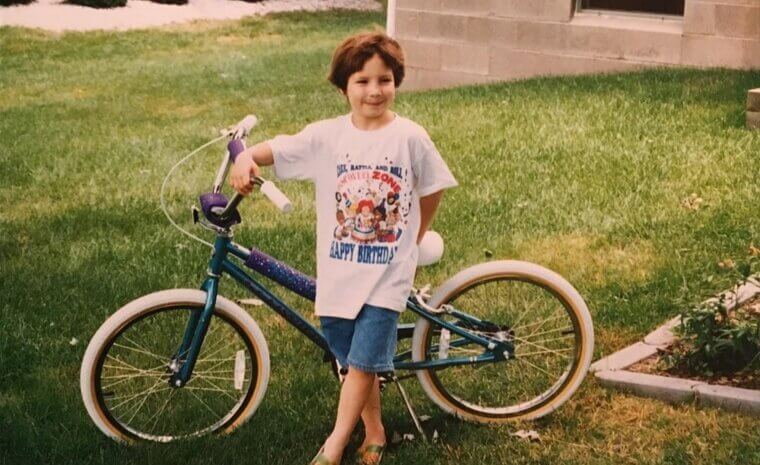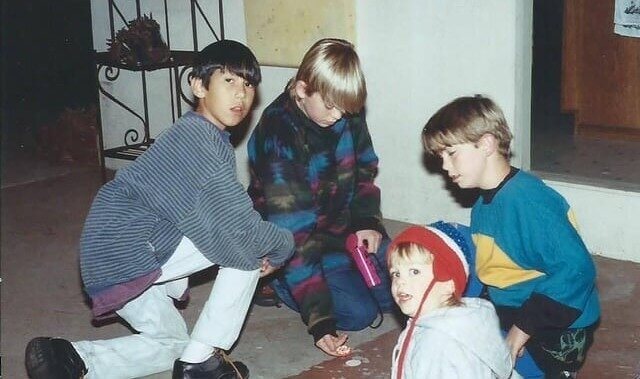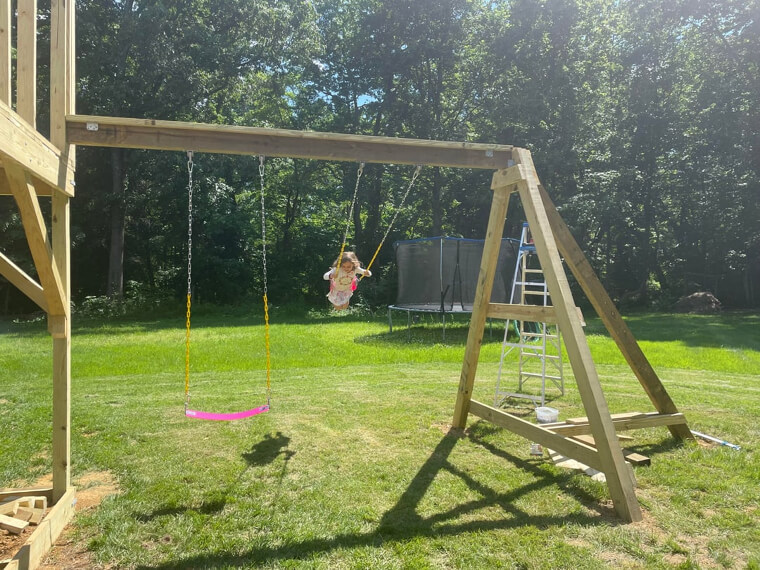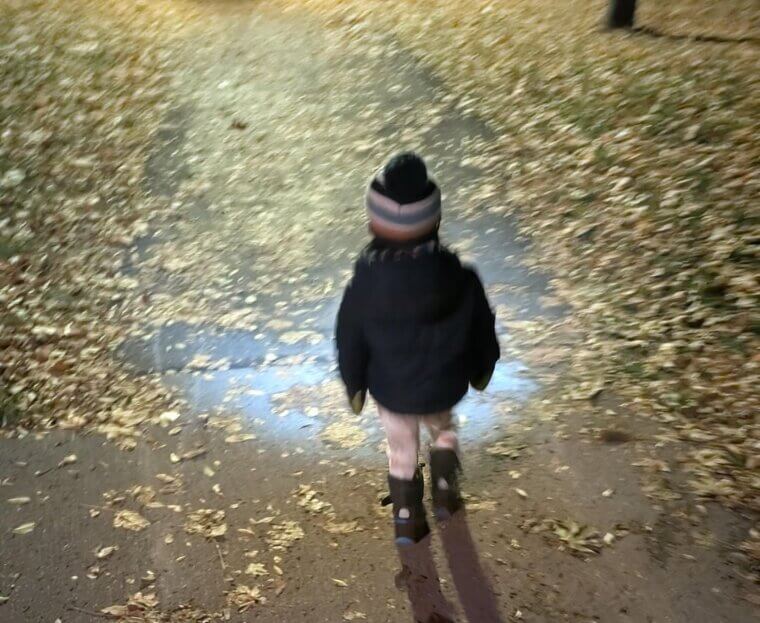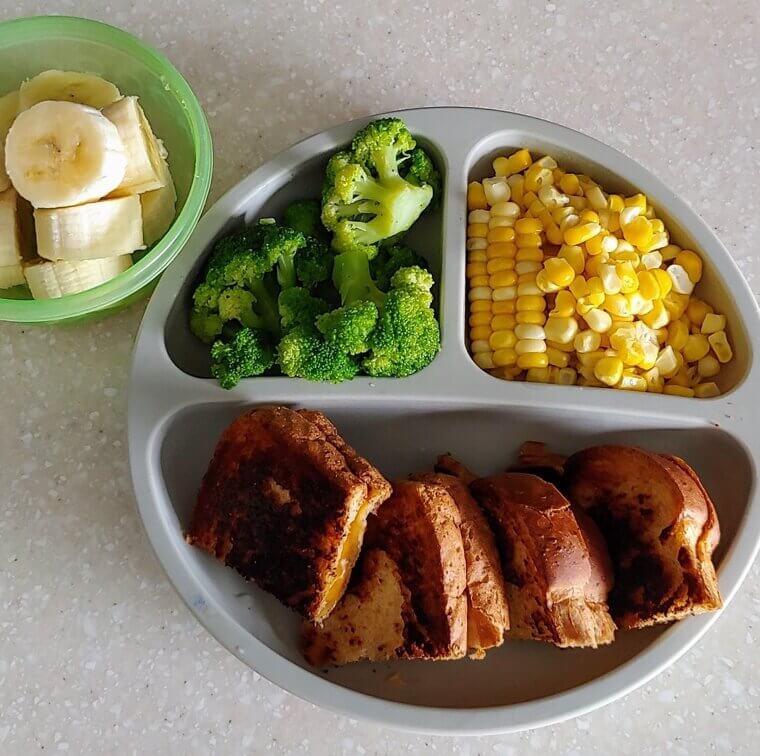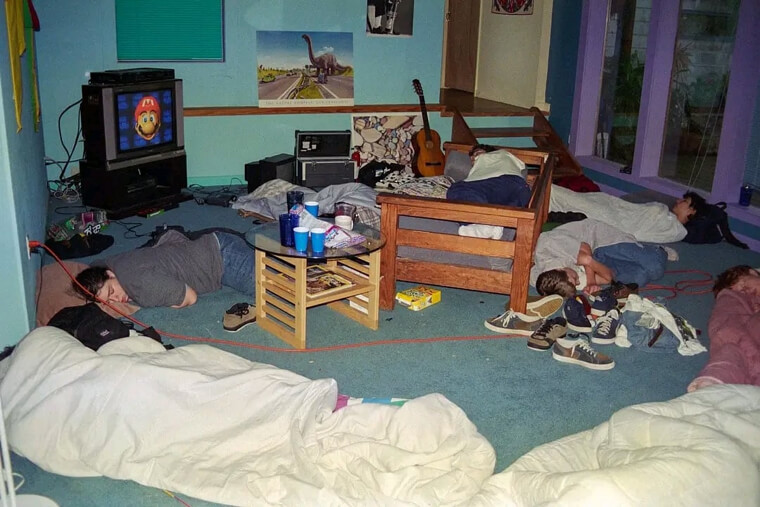Riding Bikes for Transportation and Fun
Your bike gave you independence, entertainment, and exercise all at once. You rode it everywhere without thinking about calories or training. It was how you visited friends, explored new streets, and filled long summer days. What felt like pure fun was actually a cardiovascular workout performed daily. Biking builds leg strength, strengthens the heart, and boosts balance. Kids today ride less often due to traffic, structured schedules, and screens. Your childhood miles on two wheels did more for your long term health than any fitness class could have. Riding a bike regularly during childhood is linked to better mobility and stronger muscles later in life. You may not cycle as much now, but the foundation you built back then still supports your overall wellness today.
Getting Bored and Learning to Entertain Yourself
Boredom was a normal part of childhood, and you learned how to handle it. You invented games, explored outdoors, drew pictures, or simply stared at clouds. This built patience, creativity, and problem solving skills that support emotional well being. Kids today often avoid boredom through nonstop digital stimulation, which studies show can increase anxiety. Your ability to handle unstructured time helped regulate your stress response and gave your brain crucial downtime. It is now considered an important part of cognitive development. You may not have enjoyed boredom as a kid, but it played a surprising role in shaping a more resilient adult mind.
Playing Outside From Morning Until the Streetlights Came on
Spending entire days outside did more than provide entertainment. It kept you moving constantly without ever calling it exercise. You ran, climbed, jumped, biked, and made up games that lasted for hours. Modern fitness experts would call it functional movement, but you just called it fun. All that daily activity strengthened your heart, lungs, and muscles long before gym memberships existed. Fresh air also supported better sleep and helped regulate moods. Kids now sit more than any generation before them, and researchers link that to long term health issues. But you grew up in an era when the neighborhood itself was the playground. You burned calories without thinking and built lifelong endurance without planning. That unstructured physical freedom created healthy habits that stuck with you, even if you never realized those long afternoons of tag and hide and seek were shaping your future well being.
Walking Everywhere Because Your Parents Could Not Drive You
Walking to school, walking to friends’ houses, walking to corner stores, walking because nobody had time to chauffeur you. This everyday movement contributed more to long term health than most people realize. Short walks sprinkled throughout the day help regulate blood pressure, improve circulation, and reduce stress. Growing up, you did not think of these walks as exercise. They were simply part of getting where you needed to go. But that constant movement conditioned your body to stay active and comfortable with long strides and steady pacing. Studies now show that childhood habits around walking influence adult fitness patterns. Kids who grow up active are more likely to stay active. Your generation built movement into daily life without tracking steps or wearing fitness gadgets. That steady routine has continued to protect your health decades later.
Eating Meals Cooked at Home With Simple Ingredients
Your childhood meals were not fancy, but they were often homemade. Whether it was casseroles, roasted chicken, stews, or soups, the food tended to include real ingredients rather than heavily processed convenience items. Even the treats were usually homemade. Those meals gave your body nutrients in a straightforward way, with less hidden sugar and fewer artificial additives. Eating around the table also helped regulate portion sizes long before portion control became a modern obsession. Today, experts talk endlessly about whole foods and reduced additives. You were raised on exactly that without knowing it. The habits formed during those home cooked dinners helped set a healthier foundation for adulthood. Even if your parents never said the word nutrition, those simple meals added up to long term benefits that still support your health today.
Drinking Water Because Sugary Drinks Were Not Always Around
Growing up, you often drank water from the tap or straight from the garden hose. Sodas were treats, not everyday beverages. That unintentional habit kept sugar intake low and hydration high, two factors that deeply influence long term health. Modern studies show that childhood consumption of sugary drinks affects adult weight, metabolism, and dental health. Your generation unknowingly benefited from limited access. Your thirst was quenched with simple water, and your body learned to crave it first. Even decades later, many people still favor water because it became a natural habit. Without realizing it, your childhood drinking routines quietly protected your health far into adulthood.
Playing Imaginative Games That Reduced Stress
Games built from cardboard boxes, sticks, blankets, and pure imagination helped shape your emotional resilience. Creative play encourages problem solving, lowers stress hormones, and strengthens social skills. You built forts, invented worlds, and acted out stories with friends for hours. These activities taught your brain how to cope, how to adapt, and how to stay calm without relying on constant stimulation. Today, kids often face structured schedules and screen based entertainment that reduce opportunities for imaginative play. Your childhood freedom to create entire universes from scratch supported mental health in ways modern psychologists now highlight as essential. That early stress relief helped build emotional strength that remains with you even today.
Climbing Trees and Taking Physical Risks
Climbing trees, jumping off swings, balancing on fences, and testing your limits built physical confidence and body awareness. These little risks taught you how to fall safely, how to catch yourself, and how to stay alert. They strengthened muscles, improved coordination, and sharpened reflexes. Doctors now know that controlled childhood risk taking helps prevent injuries later in life because kids develop better balance and instinctive caution. Your generation learned those skills naturally without instructions or safety labels. These experiences built stronger bones, better mobility, and a lifelong comfort with movement that many adults now struggle to develop.
Spending Time With Family and Neighbors
Your social life included real face to face interaction with relatives, neighbors, and community members. Those connections built emotional stability and reduced stress long before science began linking social engagement to longevity. You shared meals, played with neighborhood kids of all ages, and talked with adults regularly. This created a sense of belonging and support that buffered stress and built healthier coping mechanisms. Researchers now say that strong social ties can extend life expectancy. Without knowing it, your childhood was full of these ties. The community networks you grew up with quietly shaped a longer, healthier life.
Sleeping Deeply After Long, Active Days
With so much outdoor play and movement, you slept soundly without needing sleep apps, blackout curtains, or meditation playlists. Quality childhood sleep supports immune function, growth, brain development, and long term health. Modern kids sleep less due to screens, schedules, and stress. You fell asleep easily because your days were full and your body was tired in the best way. Deep sleep patterns formed early tend to continue into adulthood, contributing to healthier aging. Without realizing it, your childhood nights provided decades of benefits.

